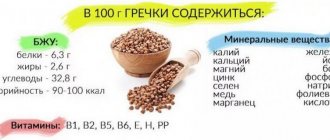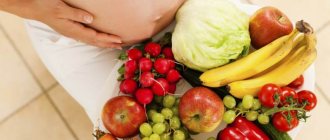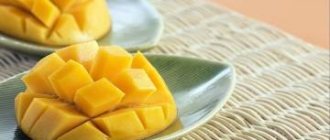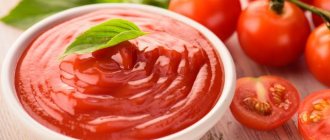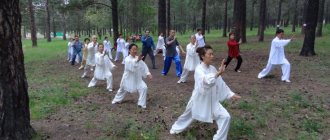Why do older people need to watch their weight?
According to statistics, people over 60 years of age experience worsening health. Irreversible changes occur in all organs and systems of an elderly person. Most diseases become chronic. Excess weight further aggravates the situation if it does not become the root cause of the disease. The risk of cardiovascular diseases (atrial fibrillation, coronary heart disease, left ventricular chamber enlargement, hypertension, left atrium enlargement, etc.) increases with increasing load on the body.
In an obese elderly person, the frequency of falls increases, the degree of stability decreases, the quality of gait deteriorates, and the level of general motor activity generally decreases. Heavy weight leads to diseases of the spine and joints: osteochondrosis, arthritis, arthrosis, which increases the risk of disability. Excess weight from poor nutrition negatively affects the quality of life of a person over 60 years of age.
Pensioners in old age experience a slowdown in metabolism. Certain types of metabolism change unevenly. Age-related changes in protein metabolism appear first. A decrease in the activity of carbohydrate metabolism is associated with a decrease in the activity or amount of the hormone insulin. Tissues lose sensitivity to its effects, which, in extreme cases, can lead to type 2 diabetes. A disorder of fat metabolism causes vascular atherosclerosis. Age-related changes in metabolism cause excess weight gain and obesity.
The knees suffer from the heavy load on the legs and are overweight, and there is a high risk of varicose veins.
Accumulations of fat around internal organs interfere with their normal functioning. Excess weight often causes problems with the liver, heart, kidneys, pancreas and stomach. Abdominal (abdominal fat) compresses the diaphragm, as a result, breathing becomes difficult, lung volume decreases, which leads to frequent diseases of the respiratory system: bronchitis, pneumonia, etc.
Excess weight in old age is the enemy of all organs and systems of the body. Combined with a slow metabolism and existing diseases, it negatively affects health. Therefore, despite the seeming difficulty of getting rid of extra pounds, keeping the body in good shape is the right motivation on the way to the goal.
Recommended articles on this topic:
- Features of older people: psychological and physiological
- The main problems of older people and ways to solve them
- Boarding home for the elderly: features and rules of choice
Why does weight gain happen?
The tendency to quickly gain weight in old age is observed quite often - and this is due to a number of reasons:
- Genetics. Most obese people have a genetic predisposition to being overweight.
- Hormonal background. In most cases, this reason concerns older women, since during menopause their bodies undergo serious hormonal changes, which entail undesirable changes in their figure.
- Decreased muscle mass. Lack of physical activity causes muscle breakdown and energy storage in the body. Reducing the number of calories you consume will help you avoid weight gain. If this rule is neglected, rapid weight gain will occur.
- Psychology. With age, activity in all areas of life decreases, and for many older people, food becomes the only source of pleasure. In this case, an excess of high-calorie foods is the cause of the kilograms gained.
- Diets. An incorrectly selected diet usually leads to health and weight problems. Radical diets, including fasting or eating protein foods, give results only for a short period, after which the person, returning to his usual diet, gains a lot of extra pounds.
Losing excess weight in old age is not easy, but it is possible. To do this, it is very important to follow the recommendations of doctors and nutritionists.
Dangerous methods of losing weight in old age
To lose weight, people often use diuretics such as Lasix. Weight is reduced due to the rapid elimination of fluid, which is achieved by taking diuretics.
Lasix is the brand name under which one of the most popular diuretic drugs, Furosemide, is distributed. This name is used to refer to all Furosemide analogues. Lasix works by increasing the production of urine by the kidneys. The use of a diuretic is aimed at quickly removing excess fluid from the body. It is prescribed for edema of cardiac, renal and hepatic origin. Within an hour after taking the tablet, the volume of urine in the kidneys increases several times.
Furosemide is usually prescribed for emergency care, but for liver cirrhosis, edematous heart failure syndrome, and nephrosis, the diuretic is prescribed for long-term use. In addition to the large volume of fluid, Lasix removes useful potassium from the body. The water-electrolyte balance is disturbed, so Panangin and Asparkam are prescribed along with Furosemide. Long-term use of Lasix causes many side effects. Using the drug to lose weight is very dangerous!
There is a risk of hypokalemia. Potassium ions together with sodium create conditions for muscle contractions, normalize water-salt balance, and regulate acid-base balance. Potassium deficiency causes weakness and muscle pain, and in severe cases, paresis, flaccid paralysis, and intestinal obstruction. If the amount of potassium in the blood is halved, death may occur due to respiratory and cardiac arrest. And even in the case of successful resuscitation, complete restoration of the functioning of the body is impossible. Therefore, if an elderly person wants to lose weight by taking Lasix, he dooms himself to serious disruptions in the functioning of vital organs.
Similarly, prolonged use of diuretics leads to a critical drop in blood pressure. Increased removal of fluid from the body contributes to blood thickening and deterioration of the supply of oxygen and nutrients to tissues and organs. Nausea and vomiting, loss of appetite, digestive disorders, skin rash, collapse, and fainting may occur, which may result in intensive care for an elderly person. Furosemide is taken strictly as prescribed by a doctor and is available only with a prescription.
We recommend
“Adaptation of older people: in modern society and boarding homes” Read more
Indicative menu for the week for the elderly
We remember that food for older people should consist of 50% raw (thermally unprocessed) foods. It is necessary to collect the diet according to this principle. You need to ensure that the menu includes:
- Vegetables and greens
– in the form of salads, smoothies, additions to main dishes.
- Lightly salted sea fish
.
- Nuts
. You can choose according to your taste - hazelnuts, almonds, pine nuts, cashews, pistachios.
- Seeds
. An excellent addition to almost any salad and dish, providing the body with many nutrients - pumpkin, sunflower, sesame, flax, poppy seeds.
- Berries and fruits in season
. An excellent alternative to refined sugar. You can make smoothies from the berries.
- Spices
. They diversify any dish and make it more interesting. Cardamom, cumin, dill seed, turmeric, ginger, cinnamon.
- Products for the prevention of various deficiencies
, which we discussed earlier. Sources of iodine, selenium, magnesium, vitamin E, manganese, etc.
- Quality fats
. Oily fish, avocados, unrefined oils, olives, etc.
We recommend
“The most dangerous fats: how they affect health” Read more
These are just the basic principles; the menu itself should be selected only individually, directly for the person, taking into account his initial data and condition. Below are just some guidelines for example.
Breakfast
:
- Unsweetened oatmeal with berries, flaxseeds and low-fat yogurt.
- Scrambled eggs with tomatoes, onions and leafy green vegetables (cabbage, spinach, etc.).
- Green smoothie made with spinach, apples, hemp seeds, avocado and almond milk.
Lunches
:
- Meat with vegetables and brown rice.
- Black bean tacos with avocado and salsa.
- Whole grain bun, lentil cutlet, lettuce, tomatoes.
Dinners
:
- Baked fish with potatoes and fried vegetables.
- Lentil soup with a side of lettuce and sweet potatoes.
- Salad with fatty fish from cold seas, fresh vegetables, avocado and olive oil dressing.
How to lose weight for an elderly person
Doctors recommend that an overweight pensioner lose weight. Excess weight provokes exacerbation of chronic diseases and disruption of organs and systems. Often, new diseases arise for this reason. But how can an elderly person lose weight? Only a specialist with a medical education can answer this question. Uncontrolled weight loss will only harm the pensioner. The issue of losing weight must be approached responsibly and carefully. Inpatient obesity treatment is a safe option, but not every elderly person can afford it.
If you follow some recommendations, you can try to lose weight at home. In this case, it is important to follow the principle of gradualism, without radically changing nutrition and exercise. For elderly people, measures for losing weight such as fasting, two or more fasting days a week, and express diets are strictly contraindicated. Even losing two kilograms in a month is a big stress for an elderly body, the consequences of which can be nervous breakdowns, metabolic disorders and other important vital processes. Therefore, you should not strive to become slim in a short time.
How can an elderly person lose weight safely? To do this, you must follow the following rules:
- Method of eating. Chewing thoroughly will better prepare the food for digestion in the stomach. Large pieces have a negative effect on the gastrointestinal tract, as they are processed longer and require more time to become saturated with enzymes. As a result, gastritis and stomach ulcers may occur.
- Method of cooking. Over the course of their lives, people become accustomed to certain foods. By keeping dumplings, fried potatoes, rich broths, bread, pasta in the diet, grandparents expose the body to unnecessary stress. With age, the amount of energy expended decreases; such heavy and filling meals not only do not bring benefits, but also add harmful substances and extra calories. Those who decide to lose weight in old age need to be patient and muster all their willpower. It is worth including light, low-fat, low-calorie foods in your diet. Over time, an older person will develop new eating habits, and the body will adapt to foods with fewer calories.
- Optimal food. Vegetables should be included in the daily menu of older people who want to lose weight. Due to poor absorption of fiber in older age, vegetables need to be boiled, stewed, baked, steamed or eaten pureed.
How to lose weight for an elderly person? Here are the tips from nutritionists:
1. Compliance with the diet.
It is important for pensioners, just like children, to follow a diet. To control your metabolism, you need to eat at the same time. The stomach and digestive system will get used to active work at certain hours, which will allow them to regulate their activity.
You also need to get used to eating fractional meals. During the day there should be three main meals and two to three snacks. With age, metabolism slows down, so if you eat infrequently, but in large portions, then there is a risk of gaining weight. To lose weight, an elderly person needs to eat more often, but in small portions.
2. Reducing caloric intake by 20–25%.
If an elderly person is used to eating too richly, then the energy value of food should be reduced gradually in order to prevent severe stress on the body.
When the total daily consumption is 2000 kcal, you need to further reduce this value to 1600–1800 kcal per day.
It is unacceptable in old age to go on mono- and strict diets, so as not to deprive the body of necessary minerals and vitamins, which are already lacking.
3. Balancing the diet with vitamins and minerals.
Elderly people need to think through their diet in such a way that it contains all the minerals, vitamins and trace elements. The diet should be balanced and selected taking into account age characteristics.
Thus, the body of an elderly person needs calcium and phosphorus to support bones that become fragile. He also needs potassium, magnesium and B vitamins. These microelements support the cardiovascular and nervous system, they are needed for the prevention of hypertension, arrhythmia, stroke, heart attack, neuralgia and other diseases.
4. Exclusion of indigestible and refractory fats from the menu.
The consumption of animal fats in old age should be minimized, replacing them with vegetable fats and polyunsaturated acids. Animal fats increase cholesterol levels in the blood, which negatively affects the functioning of the heart and blood vessels.
You cannot completely abandon these components of food. The diet must be balanced, including the ratio of proteins, carbohydrates and fats. In old age, skin elasticity is lost and disruptions occur in the hormonal system. A low-fat diet will inevitably lead to even more problems.
Ideal foods for older people trying to lose weight are lean meats (chicken and turkey fillet, rabbit, veal, quail), fish, low-fat dairy and fermented milk products, rennet cheeses. It is necessary to exclude mayonnaise and fatty sour cream from the diet; eat egg yolks in small quantities.
Eating seafood, nuts, and cold-pressed vegetable oil will fill the need for the right fats. In addition, they are high in Omega-3 fatty acids, which lower blood cholesterol levels, so an older person can lose weight naturally.
5. Eating light proteins.
Digestion of protein foods in the stomach is difficult. But proteins increase muscle mass by reducing fat mass. Despite the fact that an elderly person should not strive for a sculpted body, it is still necessary to keep the muscles in shape.
Adequate muscle mass helps speed up metabolism, which is necessary for controlling body weight in old age. Moderate physical activity also helps prevent neuralgia, pinched nerves and muscle tension.
After 60 years, it is enough to consume 0.8–1 g of protein per kilogram of weight. The optimal source of protein for older people with reduced physical activity is considered to be lean fish, lean meat, eggs, nuts, cereals, and legumes.
It is necessary to give preference to dairy products with zero or minimal fat content and consume them in limited quantities. This is due to the fact that older people are often allergic to milk and have difficulty digesting lactose. Calcium is washed out of the body when taken in excess. And there is also a risk of developing cancer when consuming dairy products.
Betty Kaan led a team of researchers to study the statistics of women diagnosed with early-stage invasive breast cancer between 1997 and 2000. The study found that women who regularly consumed dairy products had a higher mortality rate from cancer. Those who drank more than one cup of high-fat milk every day had a 50% increase in the likelihood of dying from cancer over the next 12 years.
6. Limiting the consumption of simple carbohydrates.
Simple carbohydrates in old age can lead to diabetes. It is imperative to limit the consumption of sugar, pastries, bread, potatoes, and sweets. On the contrary, it will be useful to include complex carbohydrates in your diet: whole grain bread, cereals, vegetables, berries, fruits, durum wheat pasta.
We recommend
“A set of exercises for older people: body and breathing” Read more
Plant fiber and dietary fiber normalize digestion and relieve constipation. Fruits and vegetables allow you to eat a low-calorie, but satisfying diet and help you lose weight.
7. Compliance with the drinking regime.
Insufficient fluid intake, which is typical for most older people, causes a number of problems: excess weight, difficulty in the natural elimination of waste and toxins, and deterioration of the skin. The formation of a large number of wrinkles on the face and sagging skin on the body are the consequences of insufficient water consumption. To minimize these problems, elderly people, in the absence of contraindications, need to drink about 1.5 liters of water daily.
Along with adequate fluid intake, limiting salt is an important factor in helping older adults lose weight. Its excess retains moisture in the body, causing swelling, which can lead to increased blood pressure. In case of hypertension, swelling and fluid retention are unacceptable. Therefore, hypertensive patients take medications with a diuretic effect.
8. Limiting the consumption of foods that stimulate the appetite.
It is necessary to exclude or severely limit strong meat and fish broths, sauces, smoked meats, pickles, spices, and alcohol in the diet.
By stimulating the appetite, these foods promote overeating. They are also difficult for the stomach of older people, which can negatively affect the functioning of the gastrointestinal tract.
9. Reduce salt and sugar consumption.
Salt and sugar should be kept to a minimum. A large amount of salt leads to swelling, causes high blood pressure and joint diseases.
Sugar disrupts carbohydrate metabolism, which leads to the development of diabetes. In addition, sugar has a very high calorie content. Its excessive consumption contributes to rapid weight gain.
For older people trying to lose weight, it is better to completely eliminate sugar, replacing it with sweeteners.
In the absence of renal failure and excess potassium in the body, ordinary table salt can be replaced with dietary salt. It contains microelements useful for the cardiovascular system: magnesium and potassium.
If it is not possible to consume dietary salt, you must follow the following rules:
- Eat no more than 5-7 g of salt per day.
- Replace regular salt with sea salt or iodized salt.
- Salt food after cooking, not during the process.
10. Carrying out fasting days.
You cannot make your own decision about fasting days. To do this, you need to consult a nutritionist or your doctor. Fasting days should be organized carefully and infrequently.
It is necessary to eat well, providing the body with all nutrients, vitamins and minerals.
11. Physical education classes.
Let's consider how to provide physical activity to an elderly person in order to lose weight without compromising their health. Sports should be present in everyone's life. Older people need to increase their physical activity. You may need to reconsider your daily routine to include daily morning exercises (preferably in the fresh air), walking, cardio exercises (treadmill, stepper, exercise bike, etc.). Training should be regular, the degree of load is determined by the doctor after conducting the necessary examinations.
How to lose weight in old age without harming your body
It is not easy for people over 50 to lose excess weight. After 60 years, the situation with weight loss becomes even more complicated, since metabolism slows down and health no longer allows for an active lifestyle. You can achieve the desired result as quickly as possible by changing your eating habits.
When forming a special diet indicated for weight correction, it is recommended to add to the diet foods containing complex carbohydrates and proteins, a small amount of fat, and low-fat dairy products.
The diet of an elderly person should include:
- Squirrels. High protein foods are essential for building muscle mass and are especially beneficial for older adults when their muscle tissue weakens. Regular consumption of meat (veal, chicken, turkey), fish and seafood will make up for protein deficiency, strengthen muscles, and make the skin turgor.
- Complex carbohydrates. The main difference between complex carbohydrates and simple carbohydrates is that they are digested more slowly, give you a feeling of fullness very quickly and are a source of energy. In addition, foods enriched with fiber have a beneficial effect on the functioning of the digestive tract and help cleanse it. People over 60 years of age are recommended to consume daily unpolished rice, legumes, root vegetables, vegetables, baked goods made from peeled flours, and cereal porridges cooked exclusively in water. It is better to avoid foods that contain fast carbohydrates, since they are quickly digested and are always stored as fat.
- Fats. There is a misconception that reducing the amount of fat in your diet will help you lose weight quickly. In fact, this is not the case, since it is healthy fats that contribute to the production of growth hormone in adolescents. Elderly people need them no less, but in limited quantities. It is not recommended to consume fats in the form of fatty meats, but vegetable oil, avocados, nuts, flax seeds and fish rich in omega-3 acids have a beneficial effect on the condition of blood vessels, clearing them of cholesterol plaques.
- Vegetables. In the body of an elderly person, vitamins contained in foods are poorly absorbed, which is why vitamin-mineral complexes will help replenish their deficiency. In addition, it is recommended to eat vegetables rich in fiber: this will help improve the digestive tract and speed up the process of burning internal fat.
By balancing your diet, maintaining water balance and physical activity, you can get rid of not only extra pounds, but also from many diseases. If you can’t lose weight on your own, specialists from boarding houses for the elderly can help. A properly selected balanced diet and a program of special exercises will help you achieve good results and forget about the problems associated with excess weight forever.
How to lose weight for an elderly person with diabetes
To reduce the concentration of insulin in the blood without taking medications, you need to adjust your diet. You should reduce the amount of carbohydrates. This is the only way to lose weight for an elderly person after 60 years of age if he is diabetic. The process of fat processing will return to normal, and the process of weight loss will begin. Restricting fats and calories is not helpful for diabetics because it does not affect insulin.
In the 1970s American doctor Robert Atkins developed a new low-carbohydrate diet. It aroused great interest among people as it was very effective. The book “The New Revolutionary Atkins Diet” includes useful tips by following which a person can lose weight, while the risk of diabetes tends to zero.
Diabetics are often overweight in old age. This is due to changes in the functioning of the hormone insulin, which reduces the concentration of glucose in the blood in healthy people and controls its absorption by the body's cells. The initial stage of type 2 diabetes is characterized by the occurrence of insulin resistance - simultaneously a high level of insulin in the blood and a violation of the metabolic reactions of cells. Cells do not process glucose, its level in the blood is very high. Fat reserves are formed as a result of insulin accelerating the synthesis of proteins and fats and its action on enzymes that break down fats as an inhibitor.
It is important for people with diabetes to tune in to the long process of losing weight, as noticeable results will not come immediately. Food that lowers insulin levels will take a long time to have an effect. Regular, properly selected physical activity will help you lose weight faster.
We recommend
“Gymnastics for the elderly: the best exercises for various diseases” Read more
Diet to lose weight after 60 years
It is possible to lose weight even at 60 years old. You just need to choose the right daily routine and diet. First of all, give preference to fruits and berries and snacks. Secondly, replace flour products with herbs, fruits or dried fruits. Replace black tea with green tea, and coffee with chicory, herbal teas, and juice. Instead of sandwiches, eat salads, for example. At breakfast there is cottage cheese, kefir, and gluten-free porridge. For dinner, prefer protein foods: boiled meat, fish, legumes. Consume no more than 1900-2000 kcal per day. Animal fats should be replaced with vegetable fats whenever possible. Don't forget to drink drinking water. The norm is 1.5 l. per day.
These recommendations are useful for exclusively healthy people. In other cases, you should not choose a diet on your own, but rather consult a specialist.
At Vita boarding houses, the diet and nutrition are developed by our experienced chefs and nutritionists. When requesting an individual medical diet, we do everything possible to ensure that the client’s nutrition is as required by the indications. We will be happy to take care of your loved ones!
How to lose weight for an elderly person with a sedentary lifestyle
Hypokinesia in older people necessitates daily exercise. Gymnastics should be done daily for 10–15 minutes. Supplying the blood with oxygen, training the muscles of the body - tasks that can be solved by walking in the fresh air, breathing exercises, and simple morning exercises.
If you are physically unable to do so due to health limitations, you can lose weight by changing your diet and limiting the consumption of high-calorie foods.
An elderly person should under no circumstances exhaust himself with hunger. Eating small meals up to 6 times a day with sufficient fluid is the key to burning fat and improving blood composition. A good habit is to drink a glass of warm water before meals. Compliance with the drinking regime should be limited to eight glasses of water (or other liquid) per day.
An older person can lose weight if they consume more calories than they take in from food. This does not require additional physical activity. The simplest way out is to eat less, choose lower-calorie foods. But any diet is a stress to which the elderly body reacts by accumulating fat reserves in the body. If an older person suddenly begins to lose weight, he risks not losing weight, but gaining even more. In the absence of any other option for weight loss other than nutritional correction, radical measures should be avoided.
Finally, we wish all elderly people maximum health and longevity! In all aspirations for a quality and long life, it is necessary to observe moderation and approach problem solving rationally.
A little about proper nutrition
A lot of books and articles have been written on this topic. We will cover the basic principles of a healthy diet that it is advisable for a woman to adhere to after 60 years of age.
The first of them is to compensate for the lack of estrogen in the body - female hormones, the natural production of which decreases with age. This can be done by consuming phytoestrogens, which are found in citrus fruits, tomatoes and broccoli. Phytoestrogens have a positive effect on the functioning of the cardiovascular system, making it easier to move and lead an active lifestyle.
It is better to choose lean meat for your daily diet - veal, beef and eat it stewed or boiled. By the way, protein in its pure form - meat, fish or cottage cheese - perfectly satisfies hunger, without “loading” the body with extra calories.
It is better to eat in small portions 5-6 times a day. This way you can avoid overeating without feeling hungry. It is advisable that the last meal be no later than 8 pm.
But you don’t need to believe the advertisements of various dietary supplements and other “miracle remedies” for weight loss. At best, they will do neither harm nor good, and you will simply waste your money.



